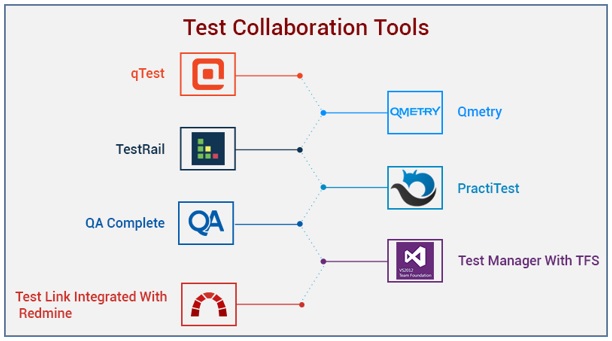Test management tools primarily aim towards efficient and effective management of testing scenarios, encompassing a vivid range of locations, applications, environment and infrastructure. These tools have proven their worth in making the entire testing process a more likeable one.
As efficient and skilled testers, there are so many wide spread activities to perform. To manage and maintain anything and everything that testers do, Test Management Tools / Test Collaborative Tools act as the best possible option. When we talk about testing activities and their management, following are the most frequent steps that have to be followed, irrespective of project size and type:
- Create and maintain data regarding releases, test deliverables, test cases and project lifecycles.
- Set up a stringent traceability amongst the testing components
- Maintenance of test execution functionalities like creating test suites and managing the status of the test execution steps
- Analytical report / graph generation along with metrics reports
- Defect analysis and tracking
In order to successfully test any software application, the above mentioned steps are the bare minimum to be performed. And to affirmatively facilitate this entire process, Test Management tools are readily available in the IT world. These Test Collaboration tools are used to keep information organized and easily accessible. It helps to improvise processes in a simplistic manner without having to maintain and manage heavy documentation. It provides varied facilities in different phases of the testing cycle like requirements tracking, test case management, defect tracking, documentation etc.
Why should organizations utilize Test Management / Collaboration Tools?
- Sets up a well defined procedure which can easily and simplistically be understood by the entire team.
- Turns out quite useful while estimating future projects based on past project experience.
- Remote location testing feasible because of seamless integration between locations, which in turn, saves a large amount of time and money.
- Trouble-free exchange of data and information between locations.
- Project tracking possible right from the inception phase till the implementation phase.
Key Parameters to Analyse while choosing Test Management Tools
- License Cost: The license cost and other surplus expenditure that can be incurred while implementation and conversion should be ascertained and analysed. Today, there are many open source tools also available. But then there are two sides of a coin, as always.
- Simplistic Approach: One of the prime requirements for any tool to be successfully accepted by its users is its ease of use and simplified nature. It is essential that the tool that you choose should not need any specialised training or developmental skills and should guarantee swift usability by self.
- Flexible System Requirements: The tool that you select should support user activities, irrespective of the time, location, system or application.
- Round the clock Support and Maintenance: The vendor that you choose, should be able to provide you 24 x 7 support and maintenance and needs to have a streamlined maintenance procedure, so that you face the least possible down time.
Prominent Features of a Test Management Tool
- Defect Tracking
- Task Management
- Test Case Management
- Dashboards depicting project status
- Content Management
- Internal/External team communication
- Sharing of bugs / errors
- Notifications via e-mail
- Event Scheduler for project meetings with reminders
- Defined To-Do list for teams
Open Source Test Management Tools and a Preliminary Comparison
[table id=1 /]
Software Testing Solution, your testing partner, offers a range of QA and Manual / automated software testing services encompassing the entire software release lifecycle. With a stringent focus on quality and processes, we have been implementing several testing projects in a multitude of technologies.
Request for a Free POC to test drive our services.






